Archives
French National Assembly rules that anti-Zionism equals anti-Semitism
December 30, 2019
On Tuesday December 3, the French National Assembly approved a resolution stating that anti-Zionism was a form of anti-Semitism. The legislation called on the French government to adopt the International Holocaust Remembrance Alliance’s (IHRA) definition of anti-Semitism.
The IHRA definition sets out examples of modern-day anti-Semitism, which include “claiming that the existence of a State of Israel is a racist endeavor” and “applying double standards by requiring of it a behavior not expected or demanded of any other democratic nation.” The IHRA also states that using classic anti-Semitic symbols and ideas—such as the blood libel—to describe Israel or Israelis equates to anti-Semitism.
This definition has already been accepted by several nations, including the UK, Canada and Germany.
The approval of this resolution by the French National Assembly comes in the wake of increasing anti-Semitism in France. Twelve French citizens have been killed since 2003 simply because they were Jewish. Attacks against Jews account for half the racist incidents in the country even though Jews make up less than 1% of the country’s population.

The resolution states: “For some years now, France, the whole of Europe, but also almost all Western democracies are facing a rise in antisemitism. Anti-Zionist acts can at times hide antisemitic realities. Hate toward Israel due to its perception as a Jewish collective is akin to hatred toward the entire Jewish community.”
In January 2019, French President Macron expressed the view during a meeting with the Jewish community that anti-Zionism should be recognized as a form of anti-Semitism. However, his comment sparked fierce controversy and months of heated debate followed.
Many French politicians, academics, intellectuals and others, including many from within the Jewish community itself, opposed the classification of anti-Zionism as anti-Semitic. They claimed the law could be used to silence legitimate criticism of Israel. In fact, the IHRA definition includes nothing that would preclude fair and honest criticism of the Jewish State.
Even the National Assembly that voted for the resolution was divided on the matter. Of its 577 members, 154 voted in favor and 77 voted against. By far the majority—346—abstained from voting.
The question is: why did so many abstain? Could it be that the force of anti-Semitism is so strong that even lawmakers are afraid to take a stand?
6 fascinating facts you never knew about the Western Wall
December 12, 2019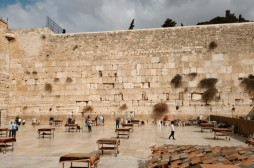
Located in the heart of the Old City of Jerusalem, the Western Wall is the holiest site in Judaism. It is the only remaining wall from the ancient Jewish Temple, where G-d’s Presence is still believed to dwell. For many centuries, Jewish pilgrims have travelled up to Jerusalem to pray at this sacred site and anyone who visits the Western Wall plaza can’t help but experience a sense of awe.
Here are some fascinating, lesser-known facts about the Western Wall:
1. The Western Wall that we see today was built in 20 BCE by King Herod when he expanded the Second Temple. The First Temple, built by King Solomon in the 8th century BCE, was destroyed by the Babylonians when they destroyed Jerusalem and took the Jewish people into captivity. The Second Temple was built when the Jews returned from exile, and then it was embellished by King Herod.
2. The Western Wall is an engineering masterpiece. It is made of enormous blocks of stone carefully stacked so they will stand firm and not fall over. There is nothing holding the stones together. Most of the stones weigh between 2 and 5 tonnes, but there is one giant stone that is over 13 meters long and is estimated to weigh 517 tons. How Herod’s team of builders managed to quarry and manoeuvre these stones without the help of modern machinery is nothing short of a miracle.

3. Between 1948 and 1967 when the Old City of Jerusalem was in Jordanian hands, Jews were not allowed to visit or pray at the Western Wall. It was only after the liberation of Jerusalem during the 1967 Six Day War that Jews were once again free to access their own holy site.4. More than a million prayer requests are inserted into the stones of the Western Wall every year. Twice a year the Rabbi of the Western Wall collects these pieces of paper and buries them in the Jewish cemetery on the Mount of Olives.
5. If you address a letter to ‘God, Jerusalem,’ it will be delivered to the Rabbi of the Western Wall, and he will insert it in the Wall for you. He receives hundreds of these letters each year!
6. There’s much more to the Western Wall than meets the eye. The wall stretches for a length of nearly half a kilometre, but only 70 meters are visible from the Western Wall Plaza. You can take a guided tour underground into the Western Wall tunnels to see parts of the wall not in plain view. Underground, you can also see other amazing excavations from Second Temple times, including water aqueducts and even a first century Jerusalem street.
When you visit the Western Wall and touch its ancient stones, the sense of history is breath-taking. It makes you wonder what other treasures from thousands of years ago are still waiting under the ground to be discovered.
Palestine: A country created with an agenda
December 10, 2019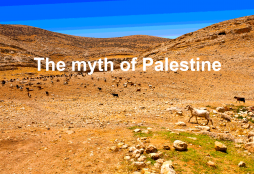
The myth of Palestine gets told so often that many people believe it’s true. This is the story:
For thousands of years, the Palestinian people dwelt peacefully in their nation of Palestine tending to their olive groves and living well. Then the Zionist Jews came, stole their land, abused them and turned them into a nation of refugees. If only the refugees could return to their ancestral homes, there would be peace.
Of course, this is a simplified version of the story. But it’s amazing how many people believe it’s true and have no idea what the facts really are.
Here are some key truths everyone should know about the history of Israel and the Palestinian territories:
1) Evidence proves there was a Jewish nation called Israel dating back thousands of years
Far from being new on the scene, the Jews lived in Israel thousands of years ago, before the name Palestine ever existed. Indisputable historical and archaeological evidence confirms the existence of the First and Second Temple in Jerusalem, and the presence of ancient Jewish communities in Israel.
Even after the destruction of the Temple in 30 CE when many Jews fled the land, there were always some that remained. The truth is that there has been a continuous Jewish presence in Israel since ancient times.
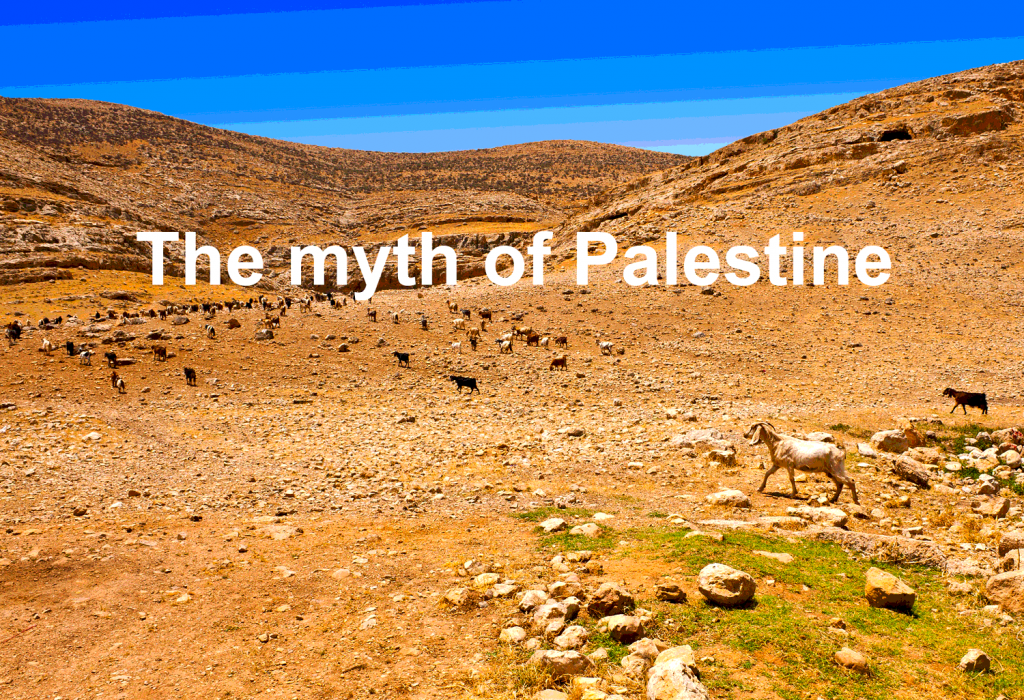
2) The name ‘Palestine’ was invented by the Romans
Palestine is not the name of an ancient land, but rather a word made up by the Romans in the first century as an insult to the Jews. So deep was the Roman hatred for the Jews that they decided to call their sacred land of Israel Palestine – derived from the word ‘Philistines,’ the ancient enemy of Israel.
3) There has never been an independent country called Palestine
After the fall of the ancient Kingdom of Israel, the region has been conquered by a long line of foreign empires – the Greeks, the Romans, the Muslims, the Crusaders. Palestine was never an independent country with its own government and population. Before the First World War that led to the creation of the modern state of Israel, the region spent 400 years as part of the Ottoman Empire, under Turkish rule.
4) Palestine was created as a tool to undermine Israel
When the Ottoman Empire collapsed in 1917, the world powers decided to create an Arab and a Jewish state side by side. The Arab state was called Jordan and the Jewish state was meant to include all the areas now known as Israel and the Palestinian territories. At that time, there was no mention of an Arab Palestinian state. The Arab state was meant to be Jordan.
It was only later in the twentieth century that a political movement arose demanding a share of the land set aside for the Jewish state. This is when the propaganda machine began spinning the story of ancient Palestine. From the very beginning, the concept of Palestinian nationality was created as an excuse to take the land designated for the Jews.
5) People living in the Palestinian territories are suffering, but it’s not Israel’s fault
The Arab people living under the control of the Palestinian Authority are being used as political pawns. Their own leaders and the leaders of other Arab states are not interested in their welfare. Quite the opposite. The more they are suffering, the more negative propaganda can be generated against Israel.
The evidence is clear. There never was an ancient land of Palestine, nor a thriving, independent Palestinian people. But the question remains: if the concept of Palestinian nationality was created to undermine the State of Israel, why do so many people believe the lie?
US State Department slams EU’s latest anti-Israel legislation
November 27, 2019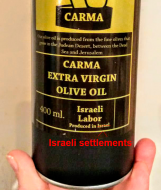
On November 12, the European Union’s Court of Justice passed a ruling that all food products made in Judea, Samaria and the Golan Heights must now be labelled as ‘Israeli settlement’ goods. Products made in these historic Jewish areas will no longer be able to claim they are ‘made in Israel.’ All 28 EU member states are legally bound to enforce this law in their own territories.
The effects of this law are expected to be devastating. Hardest hit will be the Jewish farmers and producers in the Golan, Judea and Samaria who are already living with daily threats and violence from their hostile Arab neighbours. They will now find it even harder to sell their goods around the world.
Before this ruling, the EU advised that products made by Jewish organizations outside the 1967 borders should be labelled as settlement goods, but it wasn’t legally binding.
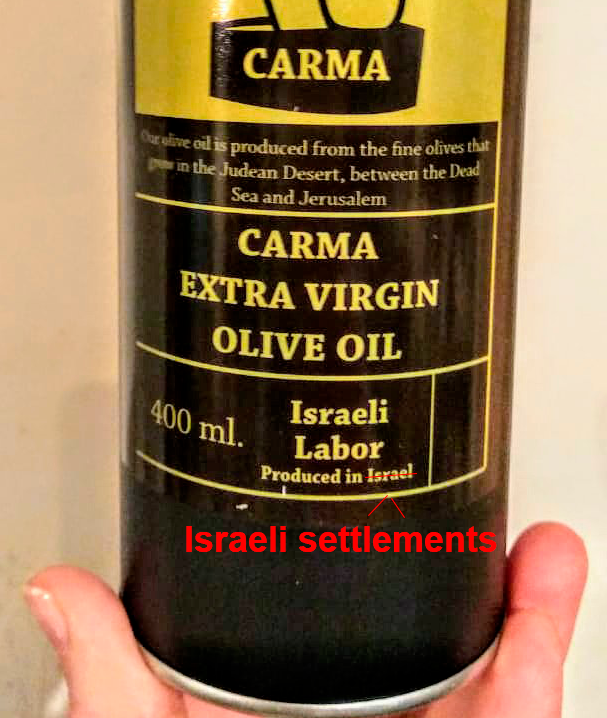
In a strongly worded response, Eugene Kontorovich from the Kohlet Policy Forum in Jerusalem, likened this latest ruling to Nazi policy during the Holocaust: “The European Court is approving putting a new kind of ‘Yellow Star’ on Jewish-made products.”
The US State Department was also quick to condemn the legislation’s “anti-Israel bias.” The statement went on to say: “This requirement serves only to encourage, facilitate, and promote boycotts, divestments and sanctions (BDS) against Israel.”
The EU’s ruling has political and security implications far beyond simply food packaging. It represents a dangerous step towards the full delegitimization of the Golan Heights, Judea and Samaria. The Palestinian Authority is already seizing on the opportunity to push further towards that goal.
Senior Fatah official Saeb Erekat issued a statement immediately after the EU ruling expressing his pleasure at the decision but calling on lawmakers to take it one step further and ban so-called ‘settlement products’ altogether from the international market. A cunning and perilous game is being played by Israel’s enemies who see this legislation as a tool to weaken (and—if they had their way—destroy) the State of Israel.
Now, more than ever, those of us who love Israel must take a stand and support the besieged farmers and producers in the Golan, Judea and Samaria. We can do our part to buy their goods and to tell others around us the truth about Israel and BDS.
Judea and Samaria: under siege but standing strong – and you can help!
November 22, 2019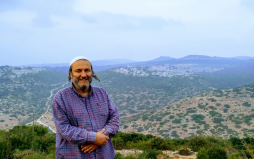
For many people, the words ‘Judea and Samaria,’ evoke images of right-wing Jewish extremists stealing land that doesn’t belong to them. This picture is false on so many levels, but it goes to show just how successful the anti-Semitic propaganda put out by Israel haters and BDS activists around the world has been.
The truth is that the Jewish claim to Judea and Samaria dates back to the days of the Patriarchs. Abraham bought a piece of land in Hebron. This was where he buried his wife Sarah, and later where he and the other patriarchs and their wives were buried. Beit El was the site of Jacob’s famous ladder dream. Shechem was the first place Abraham stopped after reaching the Promised Land.
The list of ancient Jewish connections to Judea and Samaria goes on. Far from being a modern occupation, the Jewish presence in Judea and Samaria is old as Judaism itself.
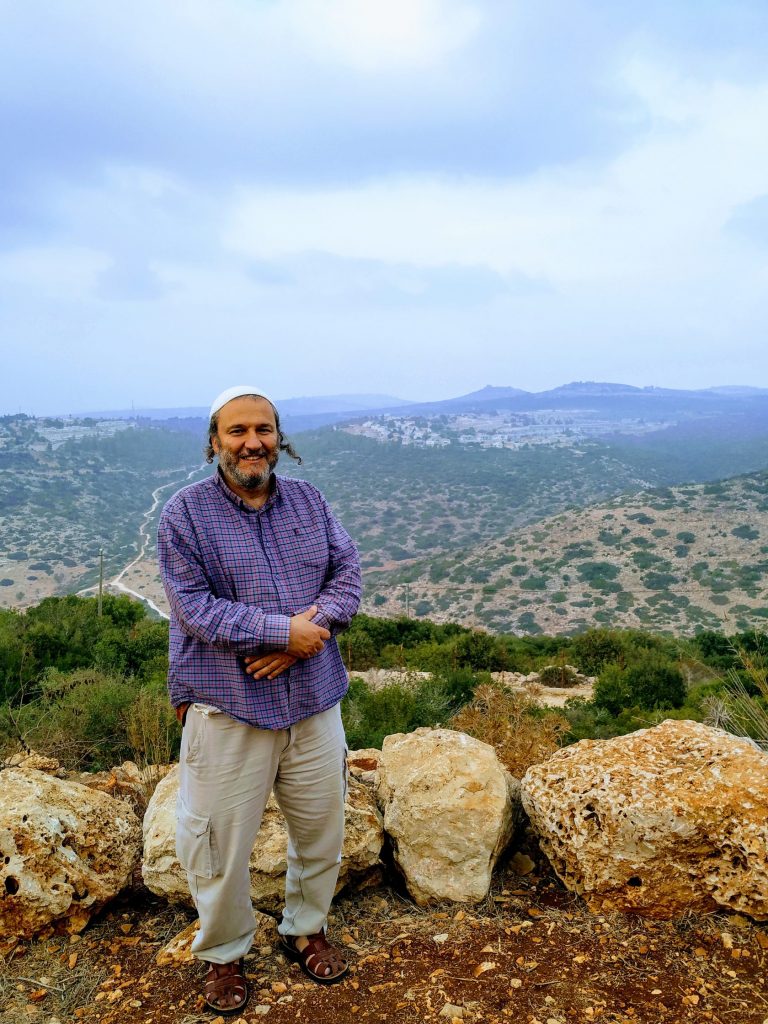
After the War of Independence in 1948, the Jewish communities were forced to flee from their homes in Judea and Samaria. However, less than 20 years later Israel liberated these territories in the Six Day War and brave Jewish pioneers returned to dwell in their ancient homelands.The story didn’t end there, though. The Jewish communities living in Judea and Samaria continue to face fierce battles every day. The threat of terror is never far away and there’s not a town in Judea and Samaria that has not been touched by violence and hostility.
Due to the security situation, many Jewish businesses in Judea and Samaria are not able to get insurance. This leaves them vulnerable to huge financial losses if something goes wrong. Recruiting staff is also a major problem due to the dangerous work environment. One of our producers recently told us that he has to carry a firearm to defend himself from possible attacks every time he wants to harvest his olives.
As if this reality wasn’t hard enough, the communities in Judea and Samaria have to contend with the lies spread by anti-Israel movements like BDS.
The Jewish artisans and producers that Lev Haolam supports in Judea and Samaria often struggle to find international markets for their goods because of BDS. That’s why it makes such a difference when you sign up to receive a box of these quality products each month.
Together we can help counter the effects of BDS and show the courageous Jewish pioneers living on the front line in Judea and Samaria that they are not alone.
Lev HaOlam Friends and Family United at the Feast Of Tabernacles in Jerusalem
November 20, 2019
During the week of Oct 13th – 18th, Jerusalem, the eternal capital of Israel, welcomed over five thousand Christians, from over one hundred different countries, who had traveled to Israel to join the celebration of Sukkot with their Jewish friends in the holy city.
In keeping with the biblical prophecy from Zechariah 14:12, “Then everyone who survives of all of the nations that have come against Jerusalem shall go up year after year to worship the King, the Lord of hosts, and to keep the Feast of Booths,” thirty-nine years ago a passionate group of Christians with a love for Israel, met to celebrate the Feast of Tabernacles in Jerusalem. They wanted to stand with Israel and show their allegiance to our Jewish homeland. This was the birth of the International Christian Embassy of Jerusalem (ICEJ) and since that day thousands of Christians from every part of the world have journeyed to Jerusalem to show their support to Israel and the Jewish people.
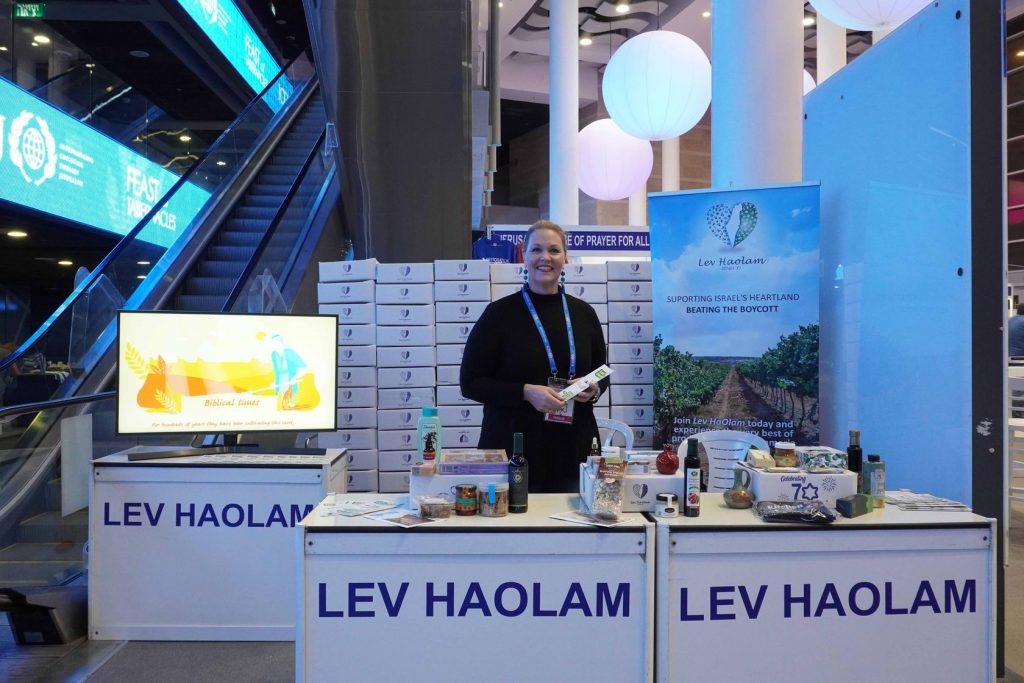
Participating in the ICEJ’s Feast of Tabernacles celebration is an annual highlight for us because we have the privilege of meeting so many of our Lev HaOlam family while they are visiting Israel. Lev HaOlam is supported by Jews and Christians around the world and this is our opportunity to meet with so many of our wonderful Christian supporters. We were greeted with smiles, hugs, and unwavering support. The Feast of Tabernacles gives us an opportunity to thank our supporters in person and to share their joy and appreciation for the care and love that is wrapped in every Lev HaOlam surprise package.It is a privilege for us to share a community with such a diverse group of people, all united by a love for Israel and an unwavering commitment to supporting the Jewish pioneers of Judea and Samaria. The smiles, greetings, and support lifted us up, and it is clear that while we practice our religion differently, we are like-minded in our commitment to rebuilding the Jewish homeland.
The blessing that we receive from our Lev HaOlam supporters goes beyond subscribing to the monthly packages, we are empowered by our family of supporters who encourage us to continue the work that we are doing in Judea and Samaria, helping small businesses in the heartland of Israel to flourish and to withstand the effects of the anti-Israel boycott. It is an honor to share a hug and to say thank you in person.
As a Jewish company based in the Jewish homeland of Israel, we are pleased to feel such warm support from both the Jewish community and other like-minded people who believe strongly in the right of return for the Jewish people. We can’t wait to meet more of our Lev HaOlam friends and family next year when ICEJ marks forty years of the nations coming up to the holy city of Jerusalem, united in friendship with the Jewish people of Israel.
Sukkot: Celebrating under the Stars
October 14, 2019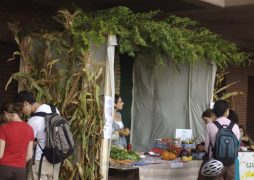
Anyone who has visited Israel during Sukkot will have been struck by the decorative tent-like structures that appear in gardens, public spaces, balconies and just about everywhere else! These ‘sukkot’ or booths are full of biblical significance, and for a week they become centers of feasting and fellowship as Israelis celebrate Sukkot, the Feast of Tabernacles.
Sukkot is the third and final ‘Fall feast,’ taking place five days after Yom Kippur on the 15th of Tishrei in the Jewish calendar (sometime late September / October in the Gregorian calendar). The holiday lasts for seven days and seven nights.
During Temple times, Sukkot was one of the three pilgrimage feasts in which the children of Israel would travel up to the Temple in Jerusalem to present themselves before the Lord and make sacrifices.
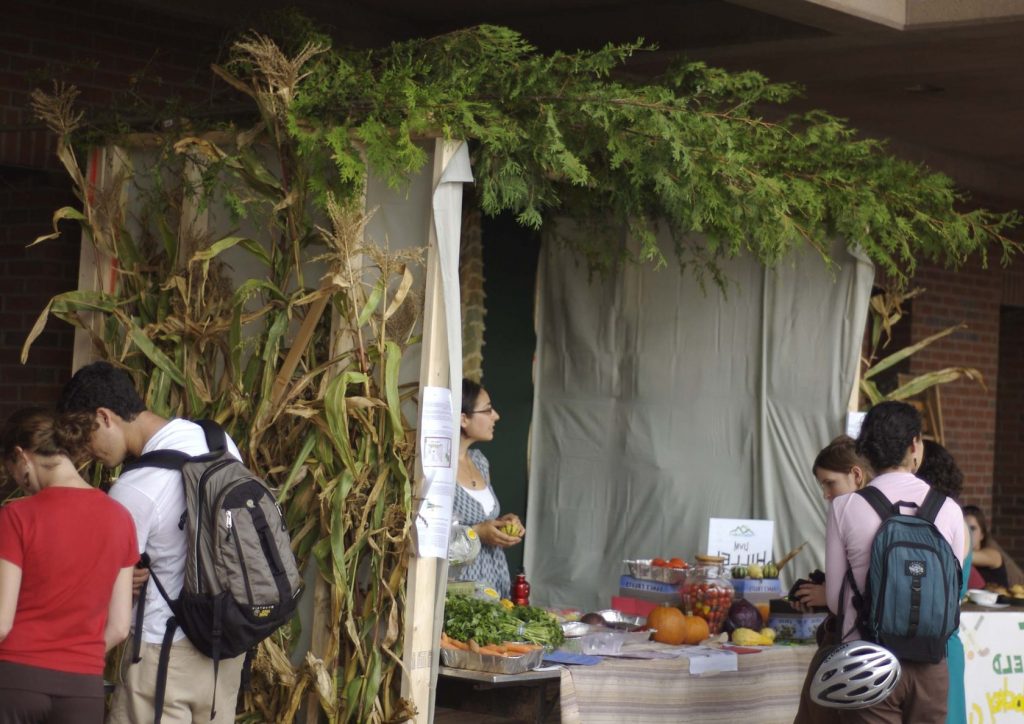
During Temple times, Sukkot was one of the three pilgrimage feasts in which the children of Israel would travel up to the Temple in Jerusalem to present themselves before the Lord and make sacrifices.In Leviticus 23, the Lord commanded the children of Israel to build booths and dwell in them throughout the week of Sukkot. This was to remember how the Lord sustained and provided for them when they lived in tents after He led them out of Egypt.
According to the Talmud, it is important to be able to see the night stars directly through the top of the sukkah. This is why sukkot booths today never have a closed roof, but rather branches of bamboo, pine or natural foliage with gaps in between. The Feast of Tabernacles is all about hospitality and fellowship. It is traditional to eat in the Sukkah and invite others to share in the joyous celebration.
Many people don’t realize that Sukkot has two different names in the Bible. In Exodus 34:22, it is called ‘The Feast of Ingathering at the year’s end.’ This refers to the harvest that was brought in after the summer (some of the harvest was gathered before the summer during the Feast of Shavuot). These two names—the Feast of Tabernacles and the Feast of Ingathering—celebrate two different aspects of G-d’s faithful provision: the provision of shelter and the provision of the harvest.
All in all, Sukkot is a fun and joyous holiday, with a focus on spending quality time with friends and family and celebrating the goodness of the Lord.
A natural toothpaste with a difference
October 9, 2019
Many of you have written in lately to say how much you liked the Masik natural toothpaste we included in a recent package.
We’re glad you liked it!
This toothpaste is actually very special. It is made by Masik, a family-run natural cosmetics company based in the Golan Heights. This is one of the territories that the BDS movement is seeking to boycott, so your support is very important to them.

Masik’s toothpaste contains no fluoride and is handmade from only natural ingredients. What makes it different from other natural toothpastes is that it contains Israeli Dead Sea salt.
The Dead Sea truly is a hidden treasure tucked away deep in the Judean Desert, offering a myriad of natural health benefits.
Salt has been used for hundreds of years to help prevent tooth decay because of its antibacterial and antifungal properties. Salt from the mineral-rich Dead Sea is particularly high in calcium, magnesium, silicon, phosphorus, sodium, and other minerals that promote good dental health.
Regular use of Dead Sea salt as part of a good dental regime has even been linked to teeth whitening.
The Masik toothpaste also contains honey and essential oils, including lavender, lemongrass, orange and tea tree. These ingredients give it a great flavor and leave your breath smelling wonderfully fresh!
When you use this toothpaste, you can take satisfaction in knowing that not only are you using a product that’s great for your teeth, but you’re also supporting an extremely worthwhile Israeli business.
We would love to hear from more of you. What were your experiences of using this unique natural toothpaste?
Yom Kippur: Fasting and Freedom
October 8, 2019
When people think of Yom Kippur—or the Day of Atonement—the first thought that normally comes to mind is fasting. But the truth is there’s so much more to this incredible Jewish holy day than just going without food.
Yom Kippur is the second of the ‘Fall Feasts,’ following ten days after Rosh HaShanah (Jewish New Year). It takes place on the tenth day of the seventh month in the Hebrew calendar, which falls sometime in September / October in the Gregorian calendar.
In Temple times, Yom Kippur was the day when the children of Israel made sacrifices to atone for their sins. According to tradition, the first Yom Kippur ceremony took place after Moses received the Law on Mount Sinai and returned to the Israelite camp to find the children of Israel worshipping a golden calf. After the Lord carried out His judgment for this idolatry, it is believed that He gave instructions on how to atone for sin as an annual ceremony.

During the days of the Tabernacle and then the Temple, the children of Israel would offer various sacrifices as sin offerings on Yom Kippur. According to Jewish texts, it was the one day of the year when the high priest could enter the Holy of Holies and perform rituals including sprinkling blood from sacrificed animals on the Ark of the Covenant. Another part of the ceremony involved symbolically casting the people’s sin on to a scapegoat and releasing it into the wilderness.Today, there are no sacrifices, but Jewish people treat the command ‘to afflict their souls’ (Leviticus 16:29) with the utmost reverence and refrain from eating, working or other regular activities.
Yom Kippur is the holiest and most important day in the Jewish calendar. In Israel, the streets are empty of cars and many Jewish people who do not perform any other religious customs still go to the synagogue to pray on Yom Kippur or carry out a full or partial fast.
Unlike other biblical holidays that are characterized by feasting and celebration, Yom Kippur is a solemn day where Jewish people remember the holiness of the Lord and the sinfulness of humankind. But for those who can see beyond the fasting and affliction of the soul, Yom Kippur is the most hope-filled and liberating day of Jewish year.
The Jews’ Blessing to Gaza
October 6, 2019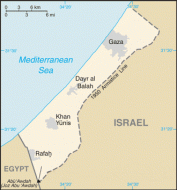
Even people who know very little about Israeli politics know two things: the people of Gaza are suffering terribly and it’s all Israel’s fault.
This is, in fact, a myth. There’s no doubt that people are suffering in Gaza. But if you take the time to find out the facts (and don’t just listen to the anti-Semitic lies told about Gaza by Israel-haters), you’ll see that the Jewish presence in Gaza brought enormous blessing for the local Arab people.
Here are some of the lesser-known facts about the history of Gaza:
Fact 1: Egypt ruled Gaza before Israel – and did more harm than good
Between 1949 and 1967, Egypt controlled the Gaza Strip by military rule. Although the people were living in conditions of poverty and overcrowding, Egypt did not grant them Egyptian citizenship or allow them to live or work in Egypt.
When Israel gained control of Gaza and the West Bank (Judea and Samaria) in 1967, it found virtually no sewerage system in the Gaza Strip, dangerous refuse treatment practices (burning garbage led to serious health hazards), and a situation where less than 10% of households had any form of electricity.
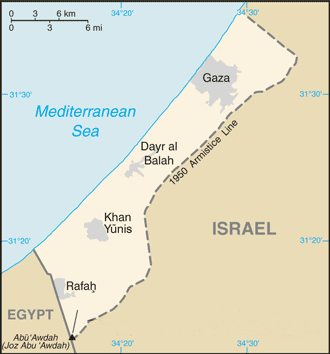
Fact 2: Israel built up the infrastructure of GazaWithin a few months of Israeli governance, the whole of Gaza was connected to the electric grid. By 1985, 94% of households had a regular electricity supply. Israel invested heavily in Gaza’s infrastructure, as well as schools, hospitals and other public facilities.
Fact 3: The Jewish settlements in Gaza were good for the Palestinian people
The economy of Gaza blossomed under direct Israeli control. The new Jewish communities established in the region brought with them expertise and employment–particularly with the production of fruits, vegetables and flowers. The Jews built more than 4,000 greenhouses and developed a thriving fresh produce export industry that employed several thousand local Palestinian people.
The standard of living in Gaza rose dramatically during this period. The per capita Gross National Product more than doubled between 1970 and 1980, making it one of the top four fastest growing economies in the world.
Fact 4: It was Palestinian terrorism that created Gaza’s problems
Contrary to popular belief, it wasn’t Israel that put an end to this upward cycle of development and prosperity. The Palestinian economy started to decline in 1987 as a result of the First Intifada. As the terror attacks increased, particularly from 2000 onwards, Israel was forced to tighten Gaza border security.
Fact 5: Dismantling the Jewish settlements was devastating for the economy of Gaza
The final nail in the coffin came in 2005 when Israel was pressurized into dismantling every Jewish settlement in Gaza. Even though international efforts were made to maintain the fruit and vegetable industry developed by the Jews, the greenhouses were sabotaged by Palestinian terrorists within months of the Jews’ evacuation. The economy plummeted and thousands lost their jobs.
From there, the descent into the poverty, extremism and violence that characterize Gaza today became a sad inevitability.
The question is: Why is the world so intent on blaming Israel for Gaza’s problems that they don’t see the prosperity that the Jews actually brought to the region?
